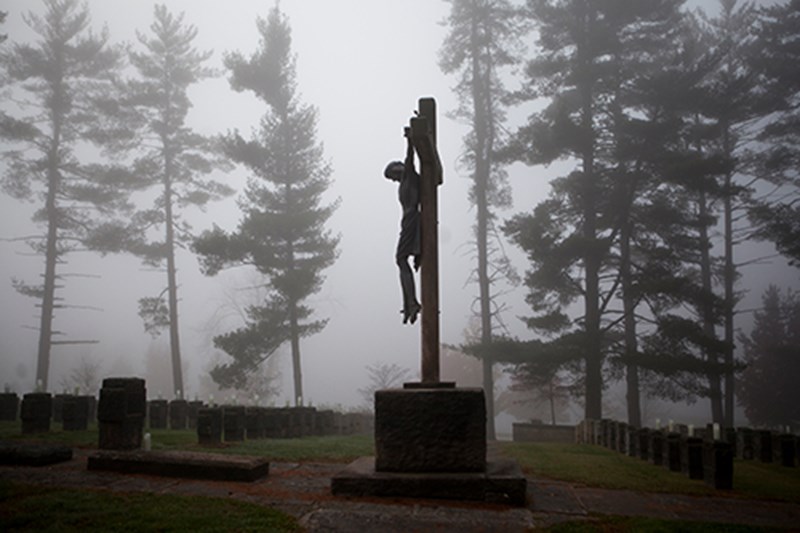A Lenten Reflection
Sr. Jeana Visel, OSB
Thursday, March 10, 2022

See what love the Father has bestowed on us
that we may be called the children of God.
Yet so we are.
The reason the world does not know us is that it did not know him.
Beloved, we are God’s children now;
what we shall be has not yet been revealed.
We do know that when it is revealed
we shall be like him,
for we shall see him as he is.
Everyone who has this hope based on him
makes himself pure, as he is pure.
Recently at table, several of us were remembering what it was like to get our first pair of glasses. Those of you with perfect vision might have to squint or blur your eyes to get a sense of what it’s like not to be able to see clearly, but it’s a hard thing.
If you are sitting in a classroom and you can’t see what’s on the board, it can make it difficult to follow what the teacher is talking about. If you are walking down a hallway and can’t identify who’s coming until you’re very close, it’s awkward not to be able to say the right kind of hello until after the socially appropriate moment. Not being able to see words on a page makes reading impossible.
So whether it came in third grade, or seventh grade, or whenever it was for us, getting glasses was a big deal. Suddenly we realized that most people could see the board from all the way across the room – amazing! Identifying people from far away – wow! Comprehension!
Good vision is such a gift. In more ancient times, people thought of vision as an active thing. Your eye was understood as reaching out to grasp the objects you saw. Hence a moral dimension was attached to seeing.
In Chapter 67 of the Rule, for instance, St. Benedict asks monastics returning from a journey to prostrate themselves and ask prayers for their faults, in case they may have been caught off guard seeing or hearing something evil on the way.
Today we understand the biology more intricately and know about light coming in and striking rods and cones and messages going to one’s brain. We realize we can’t always help what we see, for good or for evil. Still, like St. Benedict, we also know the power of images that impress themselves on our memory, and we know we have choices about what we look at, and how.
As we stand at this gateway to Lent, we are invited to see ourselves as we are, and to see God as he is. “See what love the Father has bestowed on us, that we may be called the children of God. Yet so we are.” Seeing rightly means knowing and embracing the truth. We are no more and no less than children of God.
In our most profound identity, we are created by God to be his children, to love and serve God and our neighbor, to be part of the Body of Christ. Yes, we are dust, and to dust we shall return, but also we are God’s children, now. Do we believe it? Do the ashes on our foreheads negate it?
Lent gives us time to ponder what it means to be purified. Certainly we make all our resolutions, our penitential efforts, our good works. We want to be better. We aim to do what we need to do to get our house in order to prepare for Easter. All of this has its place. We participate in our own salvation, and we need to take responsibility.
At the same time, though, the First Letter of John reminds us that ultimately we are already God’s children, even as we are called to be transformed into a closer likeness to Christ. “What we shall be has not yet been revealed. We do know that when it is revealed, we shall be like him, for we shall see him as he is.” The basis of our purification is not our own efforts, but our hope in Christ, our hope in God’s work in us.
So we are invited to see the love of the Father, and to see Christ as he is. When we get down to it, this is not about abstraction. It is an invitation to see and love real faces of real people, both those we know, and those we don’t know so well. If we keep our eyes on Christ, we will see him all around us, shining in the faces of our brothers and sisters.
To see with eyes of love is to see as God sees, with profound respect and delight in the human person. It is to see with healing eyes, gentle eyes, eyes of kindness. On the flip side, to be seen, and known, and loved is also a powerful gift. The tenderness of God can transform us. Do not be afraid of the tenderness of God. Let him love you and it will change you.
As we stand in the tension between what we are and what we shall be, let us keep our eyes on Jesus and let him do what needs to be done in us.